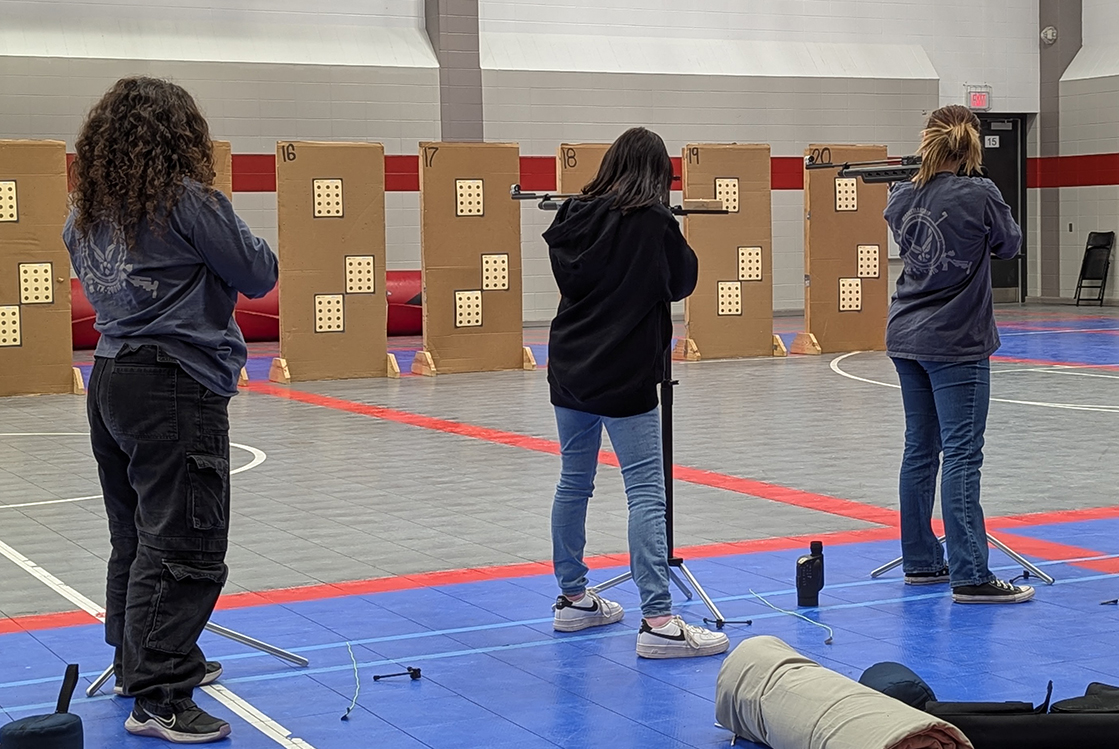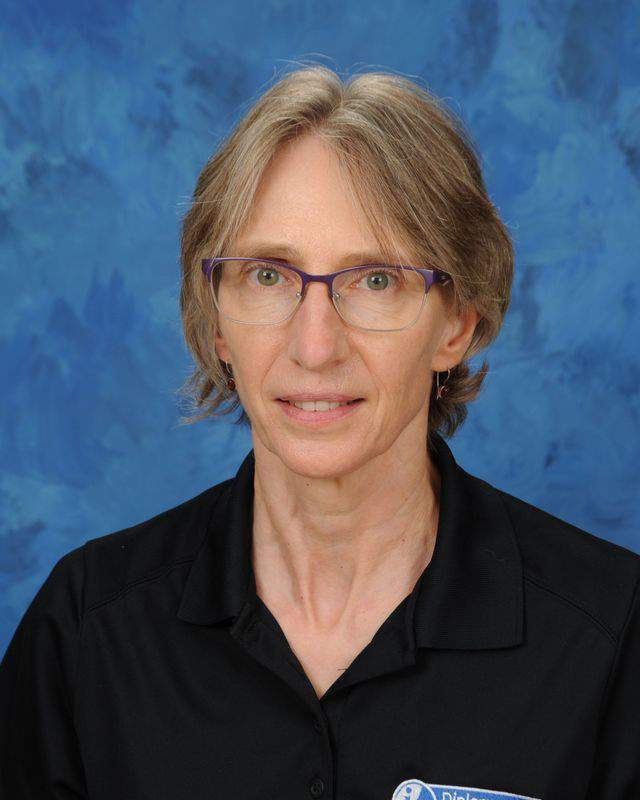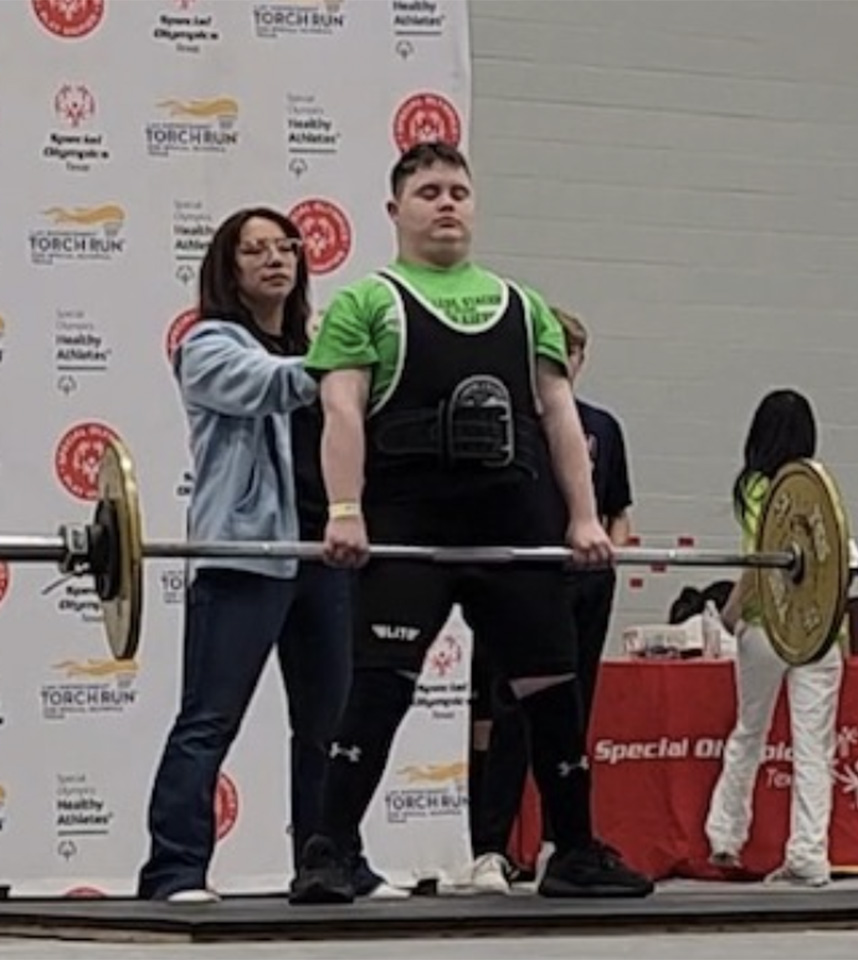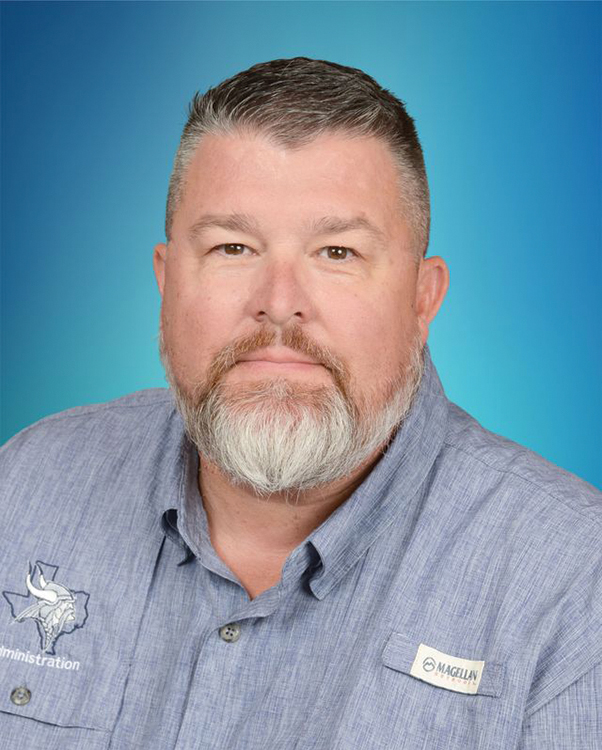Crowds fill the stadium. Students do pre-game stretches and pep talks within their teams. Coaches make sure everyone knows which events they’re competing in and where to go. Athletes line up on the track and prepare to run the 100 meter dash. The competitors take off and, when one crosses the finish line, the crowd erupts and the victor has a mile-wide smile on his face.
But this isn’t a typical track meet: this is the Special Olympics.
Every year, special education students participate in the Special Olympics – a regional competition that allows people with disabilities to compete in activities that they might otherwise have a difficult time doing. This event encourages special education students to get involved and gives them a tight-knit community.
“The Special Olympics is an opportunity for kids with special needs to feel what it’s like to participate in things that general education students would compete in,” teacher Theresa Hopkins said. “[They compete in] track and field and throwing events. We also compete in the fall in Special Olympics bowling.”
Having two events a year gives the special education students a way to be active and engage in a community-building activity. Their practice regimen is similar throughout both semesters which helps create consistency and ensure success for the students.
“In the fall, the kids go to Grand Station every Friday and practice [bowling],” Hopkins said. “They compete [at The Woodlands] and they get first, second, or third place medals or participation ribbons, so everyone gets recognized for their involvement. In the spring, they work on their runs and their throws.”
Though they put in hours of hard work preparing for this event, the spring Special Olympics was cancelled due to bad weather. Although this setback was inconvenient, they did not let this dampen their spirits.
“This year, we did get rained out, but we still traveled [to The Woodlands],” Hopkins said. “There was a kickoff dance and dinner and it was a blast to watch the kids. They recognized each other and they knew each other from different schools in the area. There was a DJ and everyone was out there doing line dances. It just brings joy to your heart to watch them.”
Despite not being able to compete in the regional event this semester, Hopkins and other special education teachers in the district are working to find an alternative location so these students can demonstrate the skills they have learned and refined throughout the semester.
“The first thing we considered when we were in The Woodlands and realized it was cancelled was ‘what can we do to make it up?’ and the wheels started working,” Hopkins said. “Jana Bishop has been working on an alternative location in Bryan and we will get as many area students as we can to come over. The students will still be able to feel that competition and pride in representing their school.”
Despite the setbacks they faced this year, the positive emotions the Special Olympics team feels made every trial worthwhile.
“I think [my favorite aspect of the Special Olympics is] simply them being able to have the same feeling of competition and success that they’re general education peers feel and to come into school wearing their medals – they’re so proud of them,” Hopkins said. “They’re feeling that same joy and positivity that their peers get. Just the look in their eyes and their happiness of knowing they’re representing the school is just incredible.”
In addition to the medals and ribbons they receive that create this pride and joy, some students have gotten a greater reward for their participation in the Special Olympics. Senior Joseph McCarty was able to letter in the Special Olympics and holds this reward near and dear to his heart, demonstrating how beneficial the Special Olympics can be.
“I was so surprised to get my letterman jacket,” Joey said. “It feels cool and great. It feels like home.”





